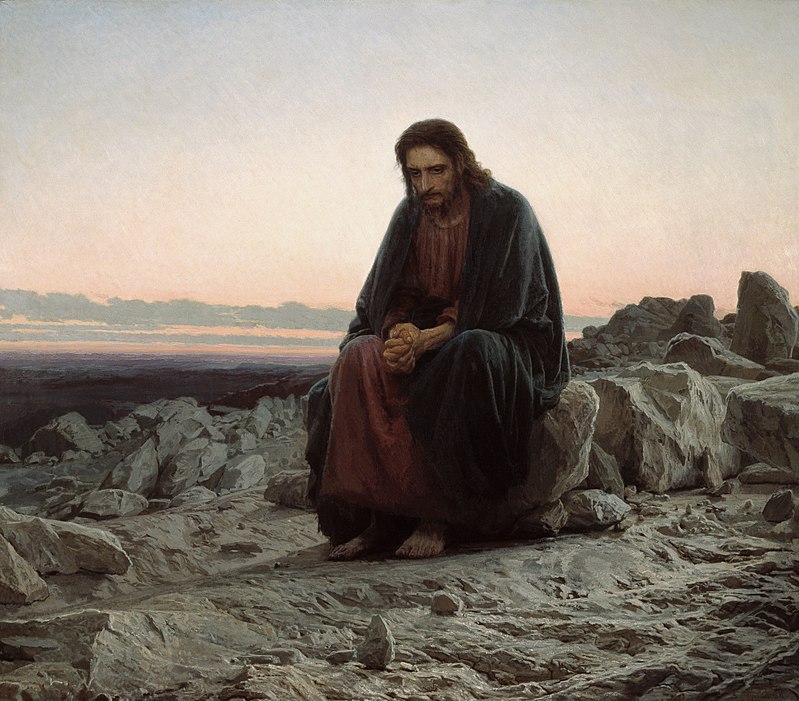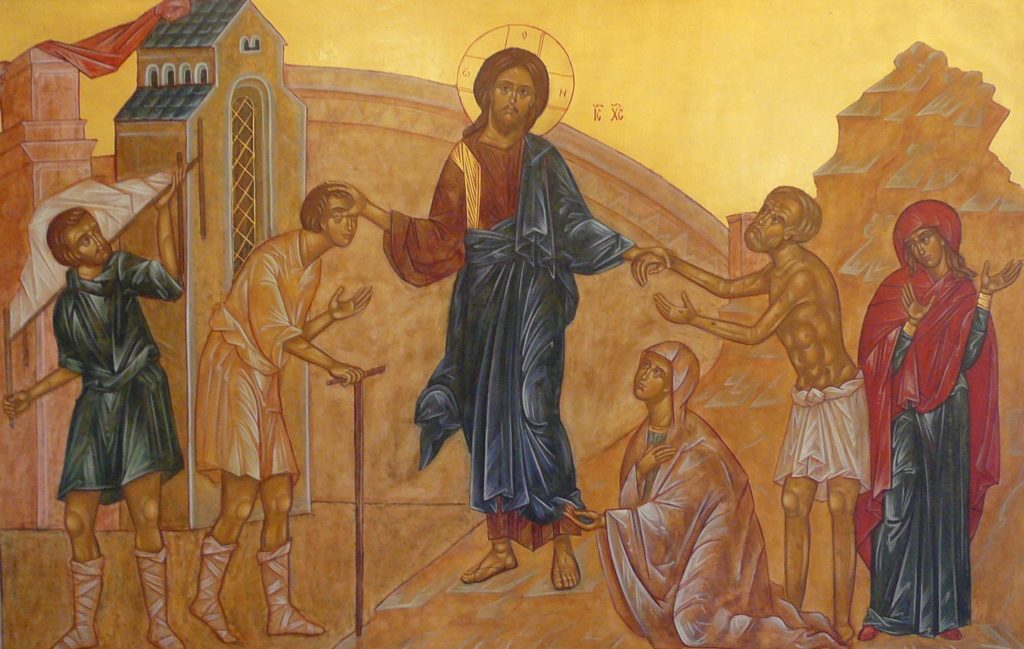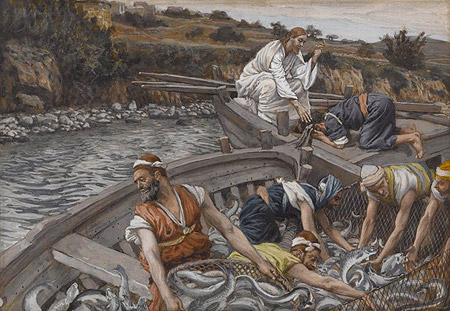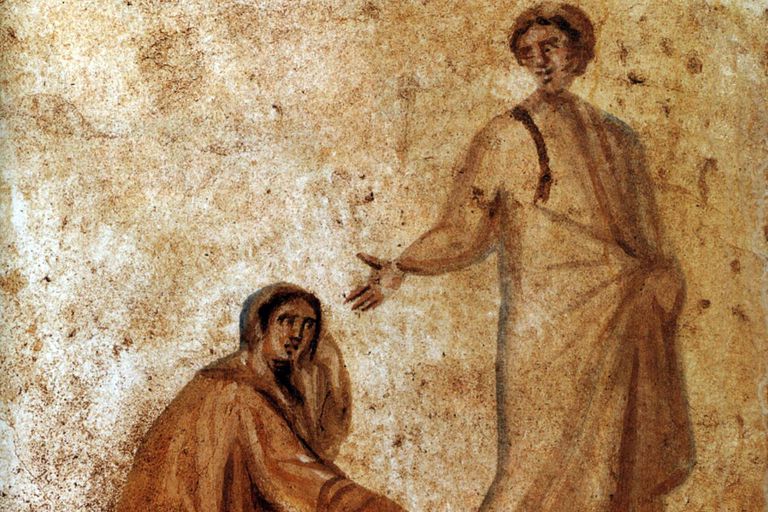
Genesis 45:3-11, 15
Psalm 37:1-12, 41-42
1 Corinthians 15:35-38, 42-50
Luke 6:27-38
Click here to access these readings.
To much joy and many accolades from the children, we are going to be changing our seasonal colors again soon. We’ve been in green for six or seven weeks, and, after Ash Wednesday, we’ll be in the long months of purple. And you’ll probably remember from my sermons before and during Advent, purple is the color of contemplation, reflection, and penitence. Purple marks the times of the year when we sit down, alone or in community, and look at our lives in a mirror, strengthen ourselves and deepen our faith. It is a quiet time, a calmness before the storm. But the storm in this case is Easter, when light and life and joy is poured out upon us by the Spirit. In this time of Lent, we remember and witness in our own hearts the last gasp of Death before the Resurrection, when Jesus rose above death and made the whole creation new.
This time of reflection, though, is not often easy. These times of muted colors, when we turn to face the darkness of the world and the darkness of ourselves as well, are not easy. And it is not a coincidence that the time of Lent follows the season of winter, and that time just before the coming of spring. Oregon seems particularly apt for a dark, cloudy, stormy Lent. I wrote this sermon on Saturday morning, when it was cold and rainy and still. And so it may seem like the best cure for the dark and dreary is for a nice dose of joy, to turn up the lights, lighten to some happy music, and sing and dance. And doing so may certainly help, but doing so would ignore the wisdom that is in the dark and stormy times, not just of the seasons but in our own hearts as well. In Lent, the Christian tradition says, “God is here as well.”
And we know that God is here in the dark times, because Jesus was here when he walked on this earth. Lent is forty days long, a number that is pretty rife with symbolism in the Bible. Noah’s ark was out on the sea for forty days and forty nights; the Israelites wandered in the desert for forty years; and Jesus was tempted in the desert for forty days. And on the cover of your bulletin, I’ve put a magnificent and haunting picture of Jesus in the desert. It’s a 19th century oil painting by Ivan Kramskoi. When I think of Jesus in the desert, I often think of him as stoic before the devil, denying each temptation with an easy wave of the hand. But Jesus wasn’t annoyed by the devil; he was tempted. In this image, Jesus remains strong and steady, but there is deep grief written all over his face and in his clenched hands. God, in Jesus Christ, knows the dark times of this world and our hearts, because he lived through them, too.
Now, during Lent, we are called upon by our Church to take on some practice or discipline. And we do this not as some kind of self-improvement scheme but instead to help us see God more clearly in the world. I remember one of the first times I took part in Lent, I gave up my mornings. Now, I really, really, really like to sleep in, so I thought, hey, that’s something that I think is good, so why don’t I give them up for a few weeks? I’ll wake up early, maybe pray a bit, read from a devotional book, and start the morning right. Yes, that’s what I’ll do. And I failed. In those forty days, I think I got up a total of three times, and once I fell asleep in the chair while reading. And part of the reason I failed is because I really, really, really like to sleep in, and my will-power is at about zero in the morning, but also because I did it because I thought I should do it. I thought it’d be good for me, that God wanted me to get up early in the morning, because that’s just a good thing to do. My discipline was more about me than it was about God.
And it was around this time, as I was struggling with my disciplines, that our bishop, Michael Hanley, told a story about his own struggles. He also met with failure, and he also realized that some of his practices were more about himself than about God. And so he did something very simple: he sat down with God and said, “God, where do you want me to be today? How can I do your will? How can I give your love to your people today?” And after praying, he wasn’t hit with a great epiphany of what to do or how to serve, but each time he sat down with God he asked this question again. And just by praying this way, just by looking away from what he saw was his failure, he turned himself, each day, more and more fully to God. This is what we should be doing in our practices. If there’s a “goal” of Lent, this is what it is.
Our practices are seeds. St. Paul writes that we don’t sow the body that is to be, but a bare seed. And what he means by this is that we don’t start in perfection. We aren’t baptized into a full and perfect faith that never falters and never fails. We may come into moments of beautiful clarity and presence before God, but then we see again the grief of the world, and we despair; or a loved one dies, and we doubt; or we speak an evil word, and we lose hope. And we think: my faith is so weak, what good is such weak faith to God?
But the ground, the soil, that we are sown into is pictured on the front of your bulletin. Our ground, the thing that nurtures our seed, that gives it nutrients and water and warmth, that life-giving ground in which we grow is Jesus Christ. And haven’t you experienced this life before? Those times when you’ve prayed, “God, I need your help to get through this” and you find that, somehow, you can; or just that person you really needed to talk to calls up or walks in; or the grief lessens just a little bit so that you can see where to go next? In our lives, be they in conscious practices of turning to God or us just going about our business, in all our lives we encounter these moments of life, of renewal, of hope, strained or free. These are encounters with God, even if, or especially if, they are small.
We are about to enter into Lent, and Lent is something we prepare for. A week or so ago, I gave you a challenge, and I gave the people at our Soup Supper last Wednesday a similar challenge. And I’ll give it to you again this morning: God has planted seeds in our faith and in our lives, and God is right now nurturing those seeds. Where is God calling you, right now, to focus. To which seed, or which sapling, or which young tree, is God calling to you to tend and nurture with him? How is God asking you to not only observe Lent but make it a holy, life-giving Lent?




